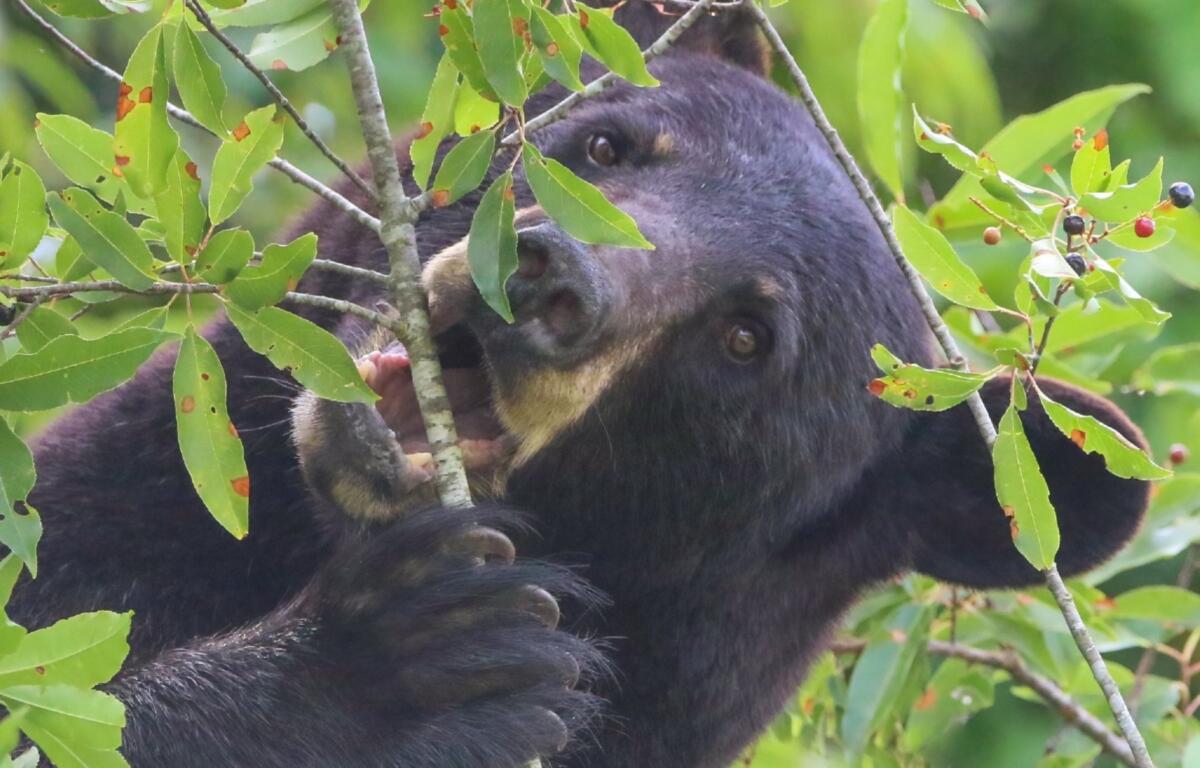ASHEVILLE, N.C. (828newsNOW) — Black bears are on the move across Western North Carolina this fall, and wildlife officials say there’s a simple reason: they’re hungry.
The N.C. Wildlife Resources Commission is warning residents that bears are entering a seasonal phase called hyperphagia, a period of “extreme appetite” when they consume massive amounts of food to prepare for winter.
“In late summer through fall, black bears are consuming a variety of hard and soft mast species, from acorns and hickory nuts to pokeberry, cherry, grapes and black gum,” state black bear biologist Jenna Malzahn said in a news release. “They’ll also take advantage of agricultural crops, such as soybeans and standing corn, as well as bird feeders and unsecured garbage and compost.”
During this period, bears can gain up to 3 pounds a day and add as much as 100 percent of their summer body weight. They may roam beyond their normal ranges, sometimes traveling up to 20 hours a day in search of food. That means more chances for people to encounter them on roads, in neighborhoods and public spaces.
To reduce the risk of vehicle collisions, NCWRC recommends slowing down, scanning roadsides for eyeshine at night and avoiding sudden swerves to dodge animals. Officials also encourage residents to follow “BearWise” guidelines, which include securing trash, removing bird feeders, and cleaning outdoor grills.
“Even in warmer climates, such as our state, a bear’s biological clock will still activate this fall feeding frenzy, even for those bears that hibernate briefly or not at all, as natural food scarcity in winter months, not temperatures, has been a key driver for activating the hyperphagia and hibernation process,” the state’s game mammals and surveys supervisor Colleen Olfenbuttel said in the release. “Even bears that won’t den until January or February still look for food practically around the clock and eat as much as they can find. However, in areas where bears have found dependable year-round supplies of human-provided foods, they may not hibernate at all but will eat as if they are going to.”
NCWRC also cautions homeowners to secure crawlspaces, porches and sheds to prevent bears from denning on their property during the winter months.
For more information on how to coexist with bears, click here or call the N.C. Wildlife Helpline at 866-318-2401 from 8 a.m. to 5 p.m. Monday through Friday.




